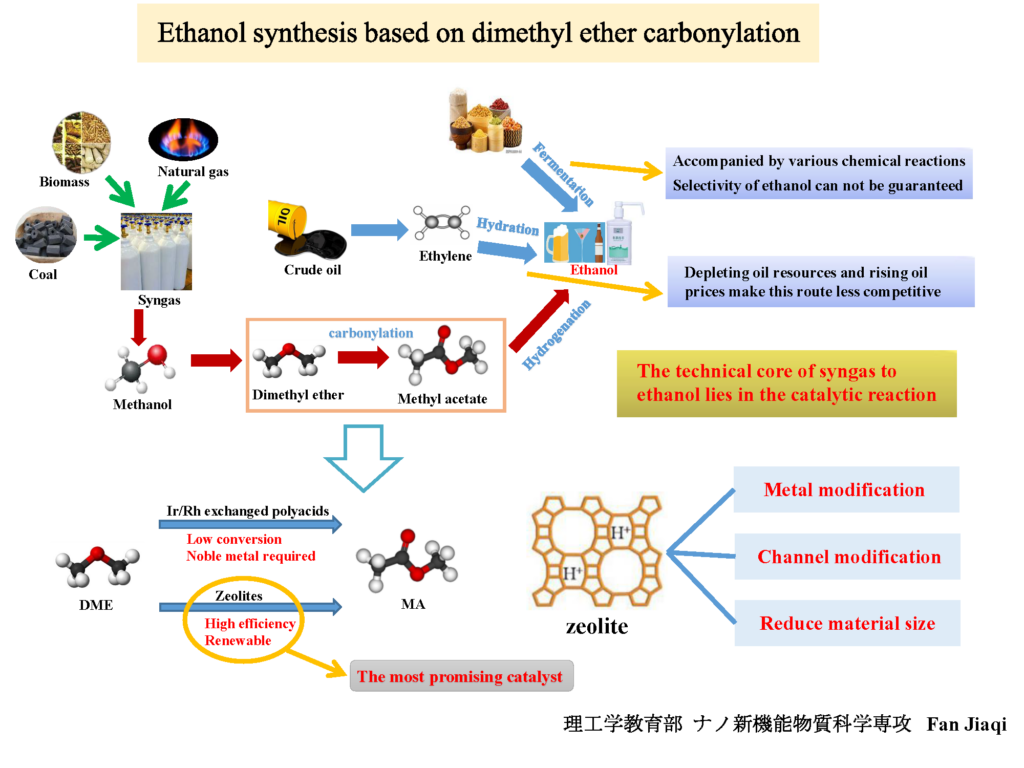自己紹介・研究目的
令和6年度修了/ ■SPRING事業 採択学生紹介

ナノ新機能物質科学専攻
令和6年度 大学院入学
範 家麒
ハン カキ
ジメチルエーテルのカルボニル化に基づくエタノール合成
I am honored to introduce myself here. My name is Fan Jiaqi, from Graduate School of Science and Engineering. My major is Nano and Functional Material Sciences. My research topic is ethanol synthesis based on dimethyl ether carbonylation. In today's world of increasing carbon emissions, I hope to do my part in the cause of carbon neutrality through the research and development of new catalytic materials.
With the gradual depletion of oil resources and the gradual rise in oil prices, ethanol production from non-petroleum routes becomes increasingly important. The purpose of my research is to produce ethanol through a clean and recyclable route. The feedstock syngas can be derived from many natural resources such as coal, natural gas and biomass. It can also be obtained by reverse water-gas shift reaction (RWGS) to consume carbon dioxide (CO2).
DME carbonylation is an important step in syngas to ethanol route, and the technical core of this step lies in the preparation of catalytic materials. In this work, zeolites with catalytic potential will be prepared. The effects of different reaction temperature, reaction pressure, feed gas molar ratio, flow rate and other reaction conditions as well as zeolite preparation conditions on catalyst activity will be systematically studied. In addition, the catalytic activity of the materials will be enhanced by metal modification, pore modification and particle size adjustment.
With the gradual depletion of oil resources and the gradual rise in oil prices, ethanol production from non-petroleum routes becomes increasingly important. The purpose of my research is to produce ethanol through a clean and recyclable route. The feedstock syngas can be derived from many natural resources such as coal, natural gas and biomass. It can also be obtained by reverse water-gas shift reaction (RWGS) to consume carbon dioxide (CO2).
DME carbonylation is an important step in syngas to ethanol route, and the technical core of this step lies in the preparation of catalytic materials. In this work, zeolites with catalytic potential will be prepared. The effects of different reaction temperature, reaction pressure, feed gas molar ratio, flow rate and other reaction conditions as well as zeolite preparation conditions on catalyst activity will be systematically studied. In addition, the catalytic activity of the materials will be enhanced by metal modification, pore modification and particle size adjustment.


